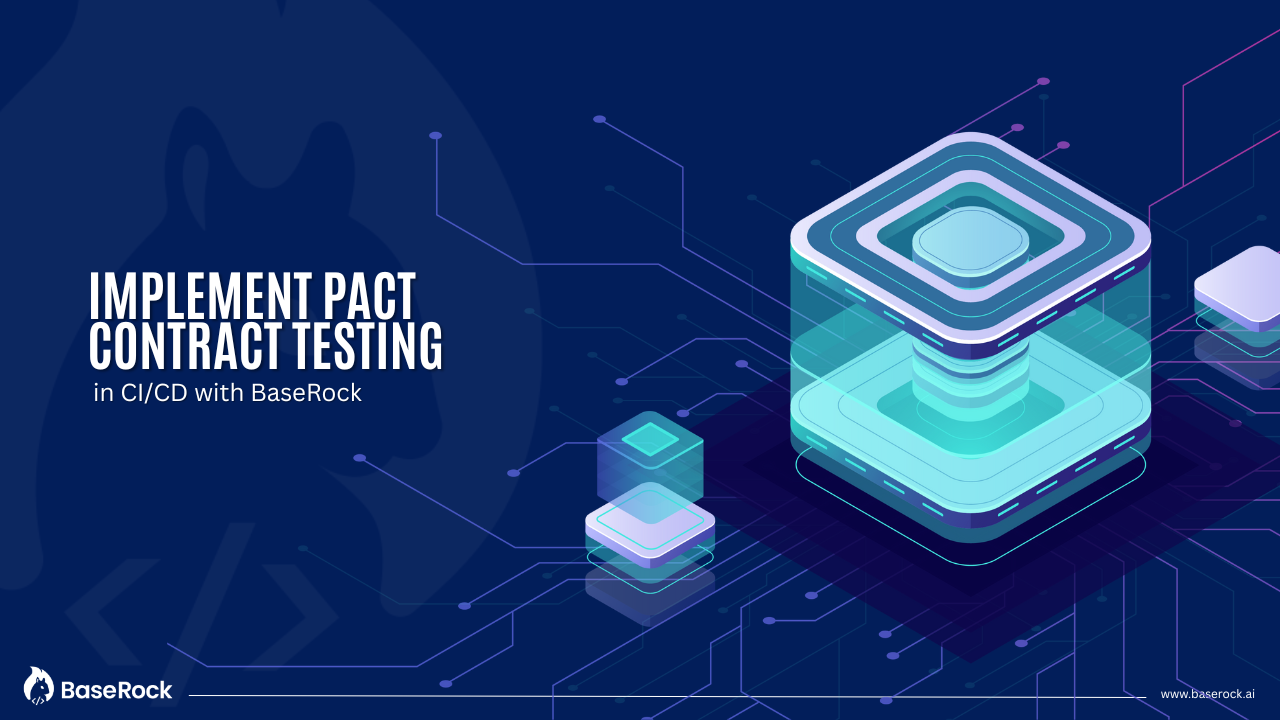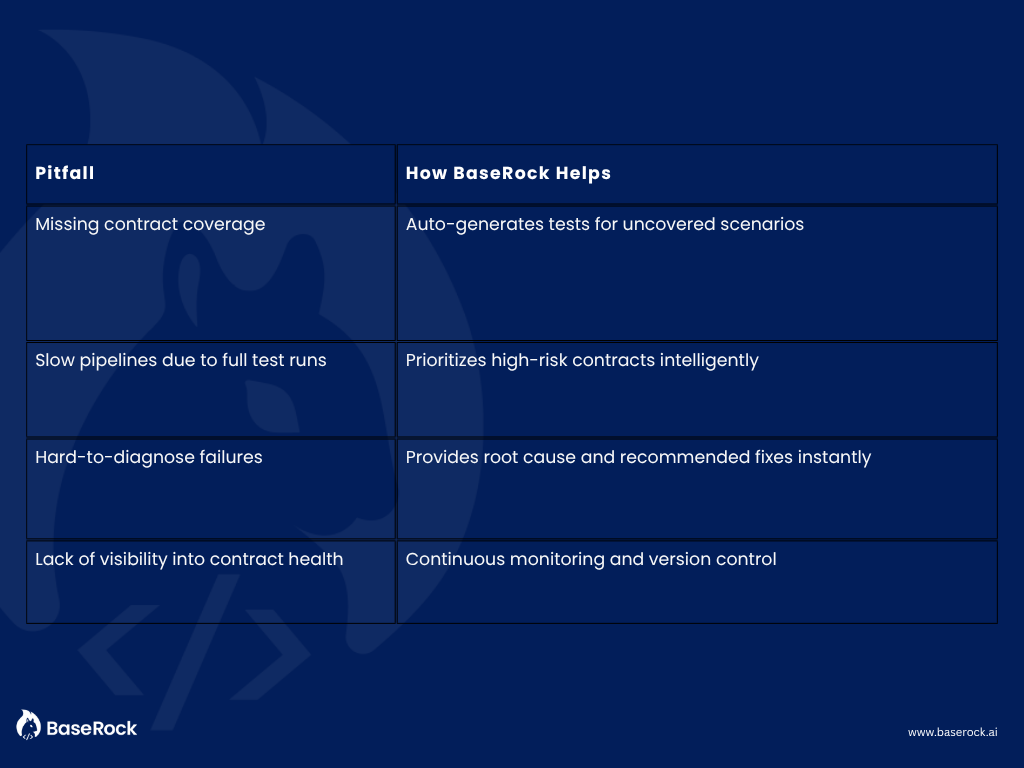.png)
Microservices architectures offer flexibility and scalability but bring a new challenge: ensuring reliable communication between services. This is where Pact Contract Testing steps in. By validating service interactions at the contract level, it prevents integration failures before they hit production.
However, running contract tests manually or outside a CI/CD process often leads to delayed feedback and higher risks. Integrating Pact Contract Testing into your CI/CD pipeline ensures continuous validation, delivering safer and faster releases.

Enter BaseRock—an AI-powered Agentic QA platform that supercharges Pact-based workflows with automation, intelligence, and adaptability, making microservices testing smarter than ever.
Pact Contract Testing is a consumer-driven testing approach that verifies whether a provider (API) meets the expectations of its consumers (clients).
Compared to traditional end-to-end testing, Pact offers speed, reliability, and lower maintenance overhead, making it ideal for modern microservices architectures.
Adding Pact tests to a CI/CD pipeline means every code change triggers automated contract verification, ensuring no breaking changes slip into production.
Continuous Validation: Every commit validates contracts across services.
Faster Releases: Reduce manual bottlenecks.
Higher Confidence: Automated checks across staging and production environments.
Without CI/CD integration, contract testing becomes manual and inconsistent, leading to integration risks during deployments.
BaseRock takes Pact-based testing to the next level by introducing AI-driven automation and optimization into the process.
Scenario:
A fintech company runs 30+ microservices for payment processing. Frequent API updates caused integration failures, slowing releases and increasing support costs.
Solution:
Outcome: Faster, safer deployments and zero critical integration bugs in production.

Pact Contract Testing is a powerful tool for microservices reliability, but manual setups and incomplete automation limit its impact.
BaseRock brings automation, intelligence, and scalability to Pact workflows, ensuring faster CI/CD pipelines, improved coverage, and reduced risk of breaking changes.
CI/CD isn’t just about speed—it’s about safe, reliable releases.
If you want bulletproof microservices integrations, it’s time to supercharge Pact Contract Testing with BaseRock.
👉 Try BaseRock with Pact today and achieve AI-powered, automated contract testing at scale.
1. How to use Pact for contract testing?
Install Pact libraries for your language, define consumer expectations, and verify them against the provider.
2. What is the difference between Pact testing and contract testing?
Pact is a tool for implementing contract testing, focusing on consumer-driven contracts.
3. What is the difference between API testing and contract testing?
API testing checks API functionality; contract testing validates that consumer-provider agreements remain consistent.
4. Can Pact testing be done without a broker?
Yes, but using a Pact Broker is recommended for sharing and versioning contracts across teams.
Flexible deployment - Self hosted or on BaseRock Cloud